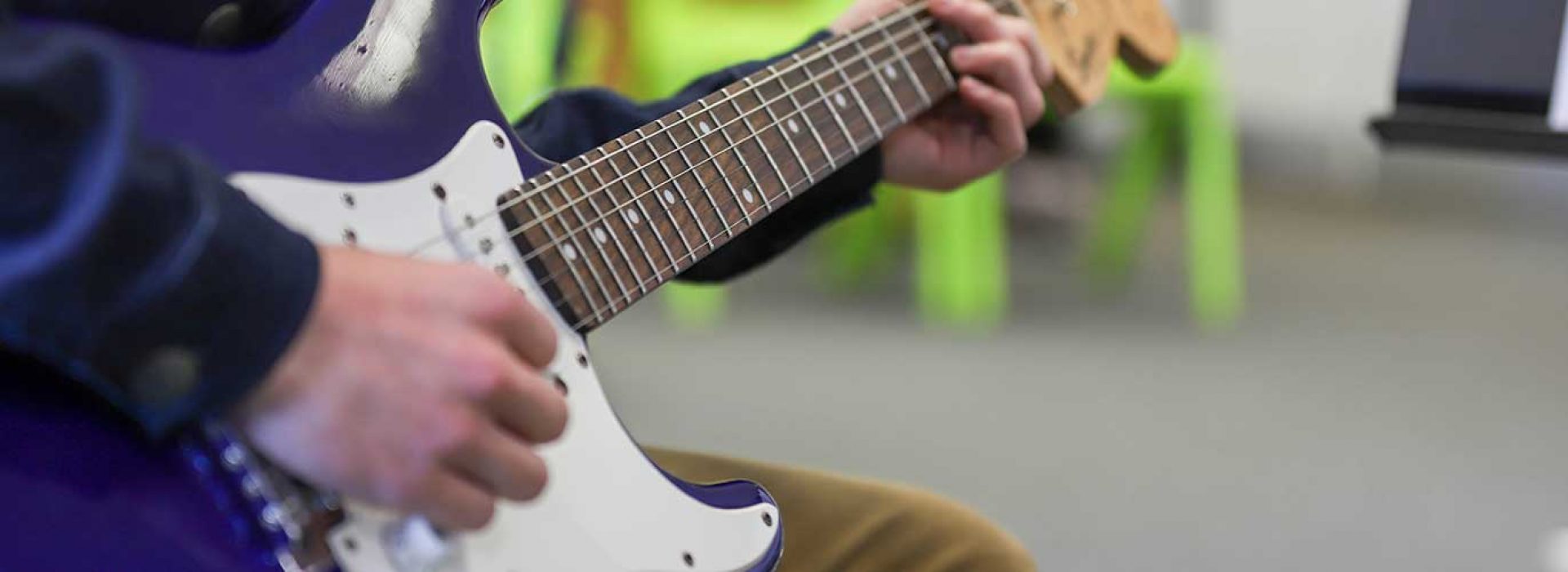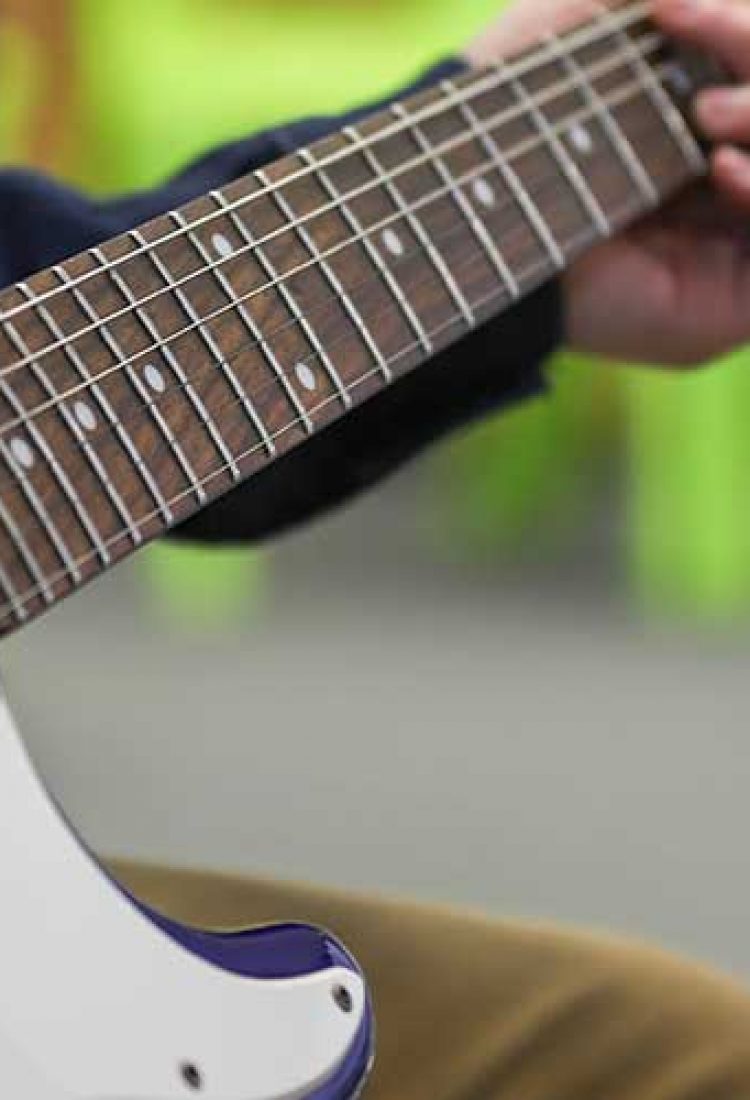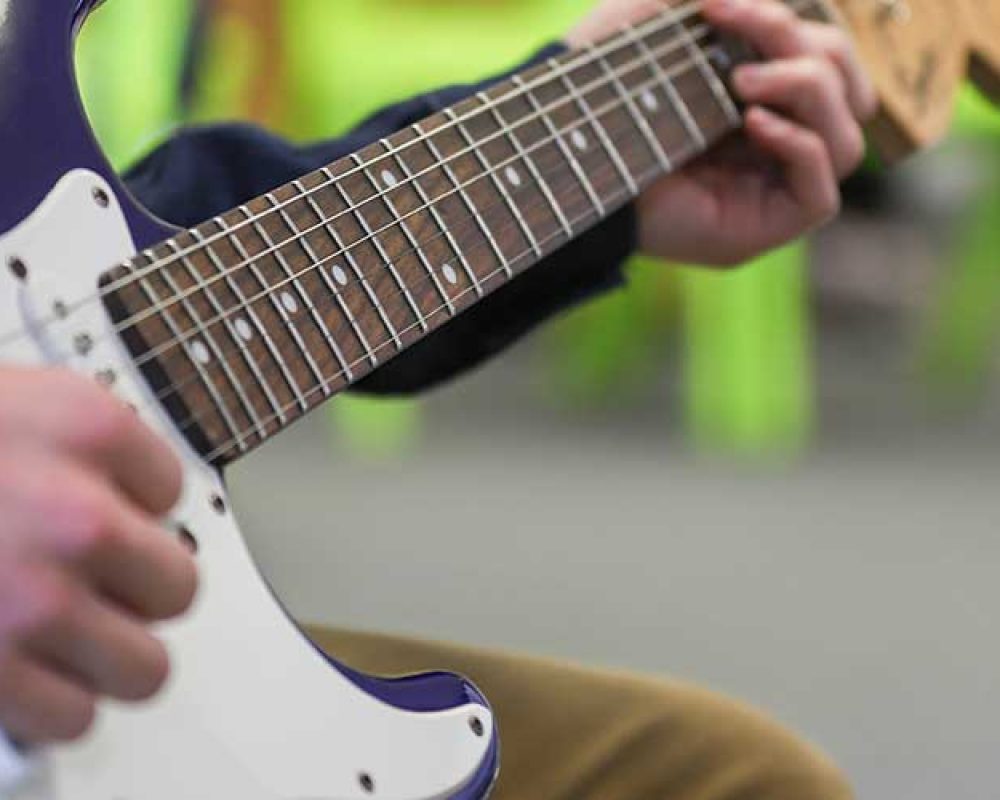Head of Department: Mrs N Austin
Department team member:
- Mrs L Byford
The benefits of studying music are immense. Music stimulates the brain, develops language skills and aids memory. The study of music positively impacts academic performance, assists in developing social skills and provides a creative outlet that is crucial to student development.
The Music room is a hub of activity both during lessons and at lunchtime and after school. Extra curricular music is a large part of school life for many students and the department runs weekly rehearsals for the orchestra, choir, funk band and string orchestra, culminating in termly concerts. There is also an opportunity for all students to have peripatetic tuition on an instrument of their choice. The mental and social benefits of learning an instrument and playing in a group are vast. Music requires collaboration, encourages listening skills and creates long lasting friendships through a shared passion.
A high-quality music education should engage, inspire and challenge students, developing teamwork and building the confidence and skills to experiment, compose and create their own outcomes.
Music also provides students with an opportunity to experience different cultures, recognising and celebrating the differences and creating a greater respect for others. Music transcends the limits of language and brings people together regardless of background.
Our curriculum at Churston:
- Develops musical skills in performing, composing, listening and appraising through a differentiated programme of work, acknowledging cultural diversity.
- Builds confidence and self-esteem through teamwork and collaboration.
- Encourages and challenges all students to be the best that they can become.
- Develops resilient, lifelong learners, allowing them to express themselves creatively.
- Heightens mental processing and problem solving, developing analytical skills through listening to music
- Creates a positive work ethic and discipline, life skills that will positively impact students in the wider world.
- Enables students to gain qualifications that facilitate their next steps in their education and career.
What we do
Students study Music once a week in years 7 and 8. Each topic they explore allows them to further develop their performing, composing and listening skills at a pace suitable to the individual learner. They are encouraged to develop their own musical interests and skills through the different areas of study, promoting confidence and ownership of their work in collaboration with others and celebrating each other’s musical strengths and skills.
Year 7 | Year 8 | |
|---|---|---|
Autumn 1 | On the Way Concepts:
Practical activities:
| Songwriting - What makes a good song?Concepts:
Practical activities:
|
Autumn 2 | On the Way Concepts:
Practical activities:
| Songwriting - What makes a good song?Concepts:
Practical activities:
|
Spring 1 | Ragtime Concepts:
Practical activities:
| Film Music - Soundtracks Video Game Music Concepts:
Practical activities:
|
Spring 2 | Ragtime Concepts: 1.Musical features of ragtime. Practical activities 1.Composing a ragtime piece. 2.Using Sibelius (computer programme) to compose. | Film Music Soundtracks/Video Game Music Concepts:
Practical activities:
|
Summer 1 | Instruments of the orchestra Concepts:
Practical activities:
| Reggae - All about the bass Concepts:
Practical activities:
|
Summer 2 | Rock’n’roll Concepts:
Practical activities:
| Reggae - All about the bass Concepts:
Practical activities:
|


